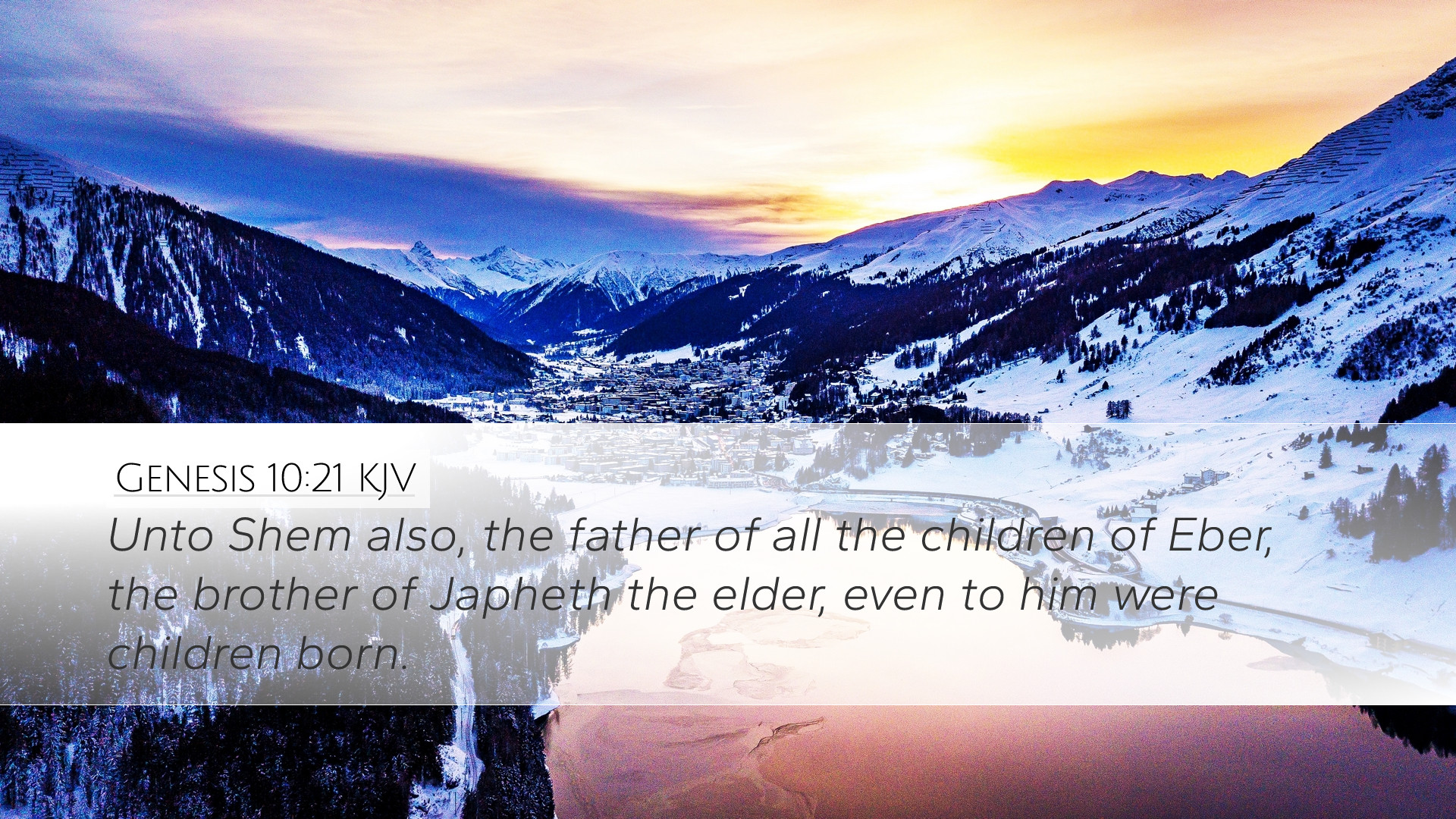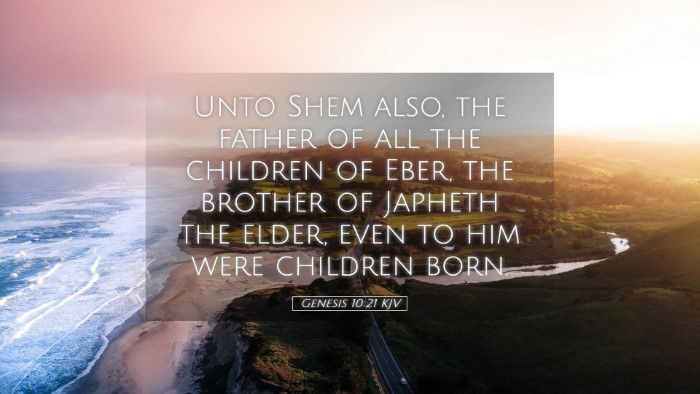Genesis 10:21 - Commentary and Insights
"Unto Shem also, the father of all the children of Eber, the brother of Japheth the elder, even to him were children born."
Overview
This verse is part of the genealogical account in the Book of Genesis, which outlines the descendants of Noah after the Flood. It emphasizes the line of Shem, an important figure in Hebrew history, and introduces the significant legacy of the Eberites, from whom the Hebrews are traced.
Contextual Background
Genesis 10 details the Table of Nations, illustrating the descendants of Noah’s three sons: Shem, Ham, and Japheth. The genealogy serves to link the post-Flood world to the people groups that would fill the earth. In this context, the mention of Shem draws attention to his pivotal role in biblical narrative.
Commentary Insights
Matthew Henry's Commentary
Henry notes that Shem, being the father of all the children of Eber, signifies the spiritual heritage that is critical to understanding the covenant relationship between God and His chosen people. Importantly, Eber is highlighted as a forebear of Abraham, making this lineage foundational for Jewish history.
Henry suggests that this lineage illustrates God's sovereign choice in the unfolding of redemptive history. These genealogies, although often tedious, reveal God’s plan through generations.
Albert Barnes' Notes on the Bible
Barnes emphasizes the significance of Shem’s position as the 'brother of Japheth the elder.' This indicates a certain priority and distinction regarding their lineages. Japheth is often attributed with the spread of civilizations among Gentiles, while Shem's line leads to the Israelites.
Barnes points out that the phrase "father of all the children of Eber" is indicative of the fact that Eber is the ancestor of the Hebrew people. The term "Hebrew" itself is derived from Eber, and thus this verse roots the identity of the Hebrew nation in a divinely appointed lineage.
Adam Clarke's Commentary
Clarke remarks that the name "Eber" denotes a transitional point in the legacy of Shem. He notes that the descendants of Eber are separated by a covenant promise that becomes central in later biblical narratives. Furthermore, Clarke clarifies that the continuity of existence post-Flood is traced through Shem’s family; hence, their significance cannot be understated.
Moreover, Clarke points out the dichotomy of lineage; as descendants of Noah's sons spread across different nations, the line of Shem specifically is significant for theological reasons, mapping out the pathway for the coming of Christ, which is pivotal for Christian theology.
Theological Implications
- Divine Sovereignty: The selection of Shem's line teaches about God’s choice of a specific people through whom blessings and covenants would come to the world.
- Identity Formation: The establishment of Eber as a significant ancestor reinforces the idea of identity—both ethnic and theological—within the context of God’s salvation plan.
- Continuity of Redemption: The genealogical records underscore the continuity of God’s redemptive work throughout history, pointing to the fulfillment found in Jesus Christ.
Conclusion
Genesis 10:21 serves as a critical junction in understanding the lineage of the Hebrew people, tracing their origin back to Shem and highlighting Eber's role in providing a national identity. For pastors, theologians, and students, this genealogy becomes crucial in recognizing how God’s purposes manifest across generations. The text not only affirms historical connections but invites deeper reflection on God’s faithfulness and His sovereign choices throughout history.


